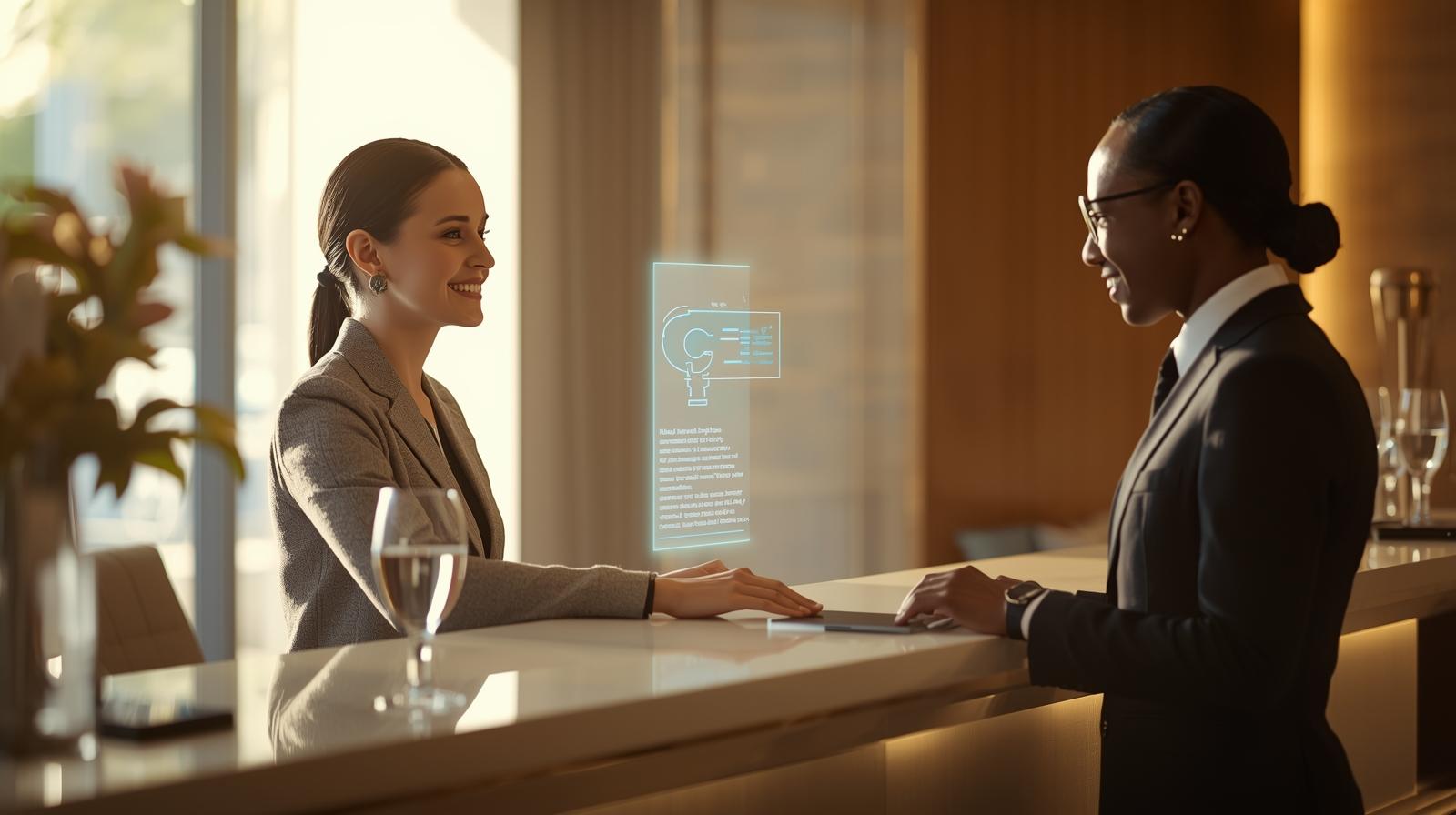The Most Human Hotel Assistant Isn’t Human at All
The difference between a chatbot and a true assistant? Understanding.
For years, hotels have tried to automate guest communication — from pre-arrival questions to mid-stay requests and post-stay follow-ups.
But early chatbots were little more than automated FAQs. They could handle “What time is check-in?” but stumbled on “Can we check in early if we land at 8?”
That gap — between response and understanding — is where hospitality AI has evolved the most.
The new generation of hotel assistants doesn’t just answer. It interprets. It listens, learns, and connects systems to people in a way that feels human, not robotic.
Today’s technology finally matches what hotels have always wanted from automation: speed with empathy.

What Went Wrong with Early Chatbots
Early hotel bots were built like decision trees.
They relied on pre-set scripts that worked only if the guest followed a narrow path.
Ask the “wrong” question, or phrase it slightly differently, and the system froze.
The result was predictable: guests got frustrated, staff lost trust in the tool, and the workload doubled.
Instead of saving time, hotels spent more of it — correcting, explaining, apologizing.
In an industry built on experience, that kind of friction was fatal.
Guests expect warmth, not canned replies. And when the bot couldn’t deliver, they turned back to the front desk.
The lesson was clear: automation without understanding isn’t progress. It’s noise.
The Shift to Understanding: Context Is Everything
The new wave of hotel AI is powered by context.
Instead of matching keywords, smart assistants read intent — why the guest is asking, not just what they’re asking.
If someone says, “Our flight was delayed,” the system knows that’s probably linked to check-in.
If a message comes from a family chat thread instead of a solo traveler, it tailors tone and content automatically.
Modern AI can also draw from multiple data sources — PMS, CRM, guest messaging, even weather and flight data — to personalize its replies.
It’s no longer about pre-written answers; it’s about dynamic understanding.
And when ten guests in one night ask about “late checkout,” the assistant doesn’t just respond. It flags a trend, prompting managers to adjust policy or staffing.
That’s how data turns into decisions.
Real Use Cases: From Reactive to Proactive
Smart assistants are quietly redefining daily operations across hotel departments:
- Front desk: AI pre-screens messages and auto-replies to common questions, letting staff focus on guests in front of them.
- Housekeeping: Predictive prompts can alert teams when multiple guests request extra towels or early service.
- Revenue and marketing: Assistants can recognize booking intent mid-conversation and push the right upsell — not a random offer, but one that fits the guest’s context.
The change is subtle but powerful: hotels are moving from reactive support to proactive service.
When technology reads the moment, not just the message, the guest experience becomes seamless.
Human + AI: The Ideal Balance
Even the best AI doesn’t replace human connection — it amplifies it.
When systems take care of routine communication, staff have time to do what truly matters: notice, listen, connect.
The right balance looks like this:
AI handles speed, accuracy, and consistency.
Humans handle empathy, emotion, and improvisation.
It’s not “man versus machine.” It’s a new rhythm — where both sides elevate each other.
The front desk doesn’t vanish; it evolves into a control center for meaningful interactions supported by intelligent automation.
Hotels that get this right aren’t just adopting new tools. They’re reshaping how hospitality feels.
The Road Ahead: Predictive, Personalized, Effortless
The next generation of AI assistants won’t just answer questions — they’ll anticipate them.
Imagine an assistant that recognizes a returning guest before they arrive, checks preferences from the last stay, and confirms the same pillow type automatically.
Or one that notices a birthday in the booking data and triggers a personalized message — not because someone remembered, but because the system cared enough to notice.
When technology becomes this seamless, guests stop thinking about “AI” altogether. They just feel understood.
That’s the future of smart hospitality: not automation for its own sake, but intelligence in service of care.